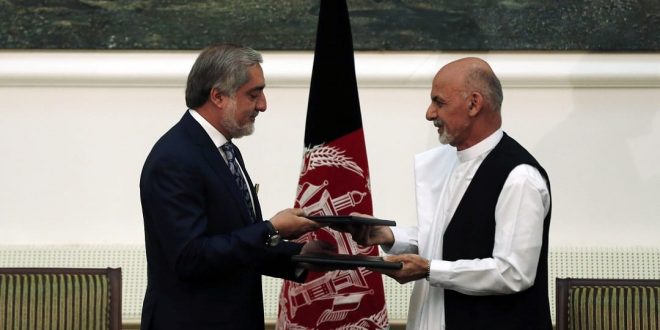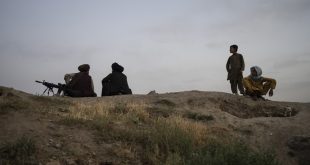Political rivals, Ghani and Abdullah, are planning their parallel swearing-in ceremony as president as allies are fuming over a deep divide that has just got worse
AT News
KABUL: Afghanistan’s major allies including the United States have reacted sharply to a decision by political rivals Ashraf Ghani and Abdullah Abdullah for parallel inaugurations as president, according to diplomatic sources.
President elect Ghani’s main rival, Dr. Abdullah has sent invites for his inauguration ceremony scheduled for Monday. Abdullah’s deputy spokesman, Fraidoon Khwazoon, said the ceremony will be held at the same time with president Ghani’s oath-taking. According to him, all preparations are set and national and international agencies have been invited. He said Afghan and foreign politicians are mediating to end the crisis.
President Ghani’s spokesperson Durani Waziri has also said a big number of national and foreign guests will attend this glorious event.
The United States had earlier asked both the leaders to delay their ceremonies until a political settlement is reached. Despite the U.S. effort to push Kabul to Taliban talks, political stalemate and threat of parallel governments is jeopardizing the fledgling peace process.
This is as U.S. special envoy Zalmay Khalilzad has held three meetings with Dr. Abdullah to find a solution to the deadlock. “We presented our plan to Khalilzad to relay it to Ghani’s office, whose plan has also been communicated to us. Although no tangible result has been reached thus far, hopes remain high,” said Fraidoon Khwazoon.
Last month, the independent election commission declared Ashraf Ghani as the winner of 2019 September presidential election; Abdullah is claiming victory too.
Wrangling over who will be the president is risking spilling into dilapidated peace process. A peace agreement was signed between the United States and the hardline Taliban after marathon negotiations in Qatar more than 10 days ago. Under the agreement, the Taliban have committed to sit in negotiating table with Kabul government.
This saga of intense electoral rivalry has precedence. Both Ghani and Abdullah have a history of rivalry for power. Back in 2014, Abdullah challenged Ghani and claimed victory in an election fraught with fraud. A government of national unity was then coaxed into being a result of a U.S. mediation with Ghani as the president and Abdullah the chief executive.
 Afghanistan Times
Afghanistan Times




